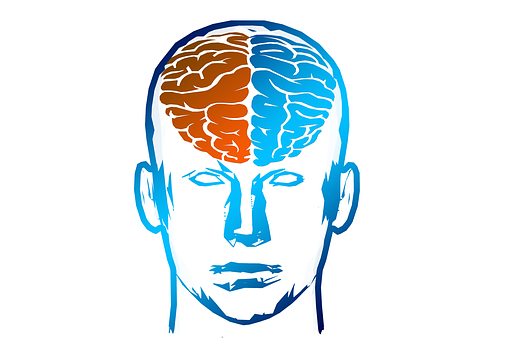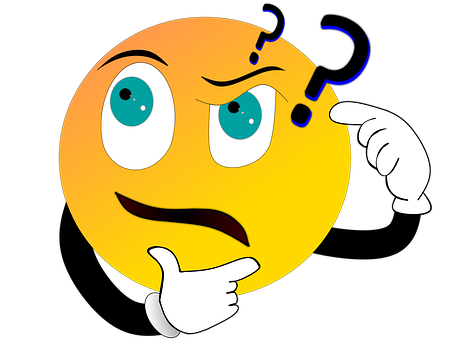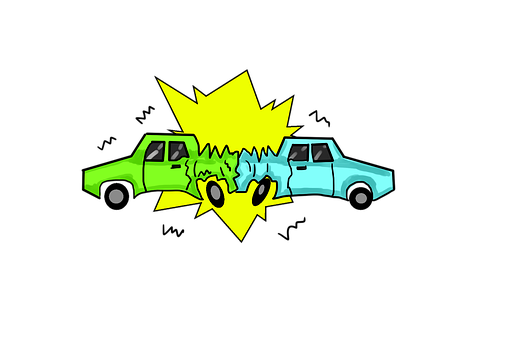Moral thinking is logic and reason in high gear!
I have noticed that a lot of people think that morals are an emotion. Not only is that wrong, but it is disastrously wrong. Morals are not emotions and so when someone accuses you of being emotional, because you're having an episode of moral behavior, well they are attempting to distract you for their own purpose. Think of it like this. I like chocolate and yes the liking of chocolate doesn't have anything to do with logic nor reason. However my liking chocolate doesn't turn the chocolate into a emotion. Thinking such is a symptom of Emotion Think. Which to me is the inability to think emotionally, logically and or reasonably.
So I, have asked myself a question or two about this and thought I would share my brain farts with my reader's.

Question number one kind of makes it necessary to figure out exactly what functions of the brain are being utilized when we are thinking about morals. This is kind of a hard thing to do mainly I, think because we don't really have a language designed to be specific when it comes to morals. Some how people have separated moral thinking from logic and reason to the point that moral thinking is just flapping in the wind. I am thinking however that the main function our brains are using is logic and reason. It is the purpose of morals that is escaping the equation and by discussing that some clarity emerges. At least for me it does.
So what is the purpose of moral thinking. I remember reading the ancient philosophers and the repeated harping upon virtue. I also remember that most of the explanation where vague and not really helpful. The closest thing I remember reading from one of the Ancient Philosopher's was that Virtue leads to self discipline. So I think that virtue is a kind of self examination for the purpose of making the examiner better in small increments. This however is not moral thinking, but it is a moral practice.
To me and correct me if I am wrong about this? Moral thinking is right thinking or righteous thinking. Maybe one could even call it divine thinking?

So if moral thinking is divine thinking what is it's purpose? What exactly are we trying to do when thinking divinely? Is it more self examination for the purpose of making the self even better? Some how I don't think so? I notice that when we think divinely that it is usually about two different thing, which is binary. It is about something in the environment that needs some kind of change for the safety of all? Or it is about a behavior that needs some kind of change or manifestation? Most times however it is some combination of both.
That something that is in the environment that creates a condition of behavior that needs a change requires divine thinking. Both seem to be subject to natural law(God), which is logic and reason.

This answer Question Number one:
Question number one is why do people conflate emotions with logic and reason in regards to morals?
Thus I think having virtue is what is producing the emotions and not moral or divine thinking. It is confusing however because one has to have virtue in order to be able to think divinely. Making virtue and divine thinking appear together and seemingly separating divine thinking from logic and reason.
Question number two is: what is the role of logic and reason when it comes to morals?
what is the role of logic and reason when it comes to morals?
It seem to me that it is obvious that moral thinking is logic and reason in high gear. Meaning that one must first be virtuous, which creates the conditions (muscled thought) for right, righteous or divine thinking. Which is truly just logic and reason in high gear. All of it subject to natural law and comes about because of natural law (God).

What is God? You seem to say that it is "natural law". How do we know what natural law is? Cod eat their young. It that a natural law that humans should follow? Eating your young seems abhorrent to you. Is that an emotion? Why is it abhorrent? Does the Bible say it is bad? Did you use logic and reason in high gear to arrive at the conclusion that you should not eat your young? I don't think so. It seems that emotion is involved in morals.
How is emotion involved in morals? Emotion determines what we value. If we value life and personal integrity and believe (no logic necessary) that all living things have a right to life, then we will not kill or eat our young. If we are just living meat, like cod, we can ignorantly eat our young. Our values and preferences are based on emotions.
Any system of morality needs to be looked at by evaluating the underlying values that give rise to the rules. Example: If you value life, you are pro-life. If you don't value life, it is ok to kill an unborn child. If you value honesty, you don't tell lies. If you don't value honesty, you can lie all you want to get your way. etc. etc. Logic and reason come in to play when you analyze the long-term consequences of valuing life and honesty.
I'd love to have a morality base on "God" or some notion of "God". However, in this day and age, "God" can mean many things and God is so easily attacked as a product of superstition so we need to find a better basis.
Aside: This is how society is being subverted: Truth that doesn't agree with your narrative = "conspiracy theory" and anyone's belief system that isn't "secular" = "superstition". "Secular", by the way, is just as much a religion as any other.
"What is God? You seem to say that it is "natural law"" Natural Law can be described as how things work in the universe. The closest description of God I know of.
"It seems that emotion is involved in morals." That is what I claim. Maybe re-reading what was said about virtue would help. Thinking with emotions is necessary, but cannot be done using the facilities of logic and reason. Emotional thinking is a practice in assigning arbitrary values to people, places and things. Those values do not describe the people, places and things, but do describe how we feel about those people, places and things. There is no logic, reason or value in the real world, merely value to the individual who generates the emotions.
"Any system of morality needs to be looked at by evaluating the underlying values that give rise to the rules."
Those underlying values come from nature! Just my opinion.
"I'd love to have a morality base on "God" or some notion of "God". However, in this day and age, "God" can mean many things and God is so easily attacked as a product of superstition so we need to find a better basis."
The universe works the same as it did the year of my birth. I am only 99.9 percent sure of that. Nature as far as I know has worked the same way my whole life. Thus physics is a study of how nature works (natural law), and it has value precisely because it works the same way it did when it was discovered as far as I know.
What does change is mans ability to perceive. That is too huge a subject to attempt to have a meaning full discussion in comments. Sorry!
"Truth that doesn't agree with your narrative = "conspiracy theory""
This is the crux of my point about nature not changing , but man's perception does. What doesn't change in the above quote is the "Truth" agreement, narrative and conspiracy theory all change like the wind.
Thank you for you comment and consideration on this subject. It is important that people seek virtue, which is self examination with the purpose of bettering one's self. Thus creating the mental muscle to be able to put the mind in high gear and use logic and reason morally.
Emotion affects (and, without self-discipline, effects) action. (Hence the root word 'motion' - FYI). Emotion does not choose values; the conscience does. Yes, in the absence of conscience, say in a brute, emotion alone drives towards the "values" of animal instinct/nature; but again, emotion does not choose, there is no choice involved in instinct.
Not to say that you are right or wrong in the statement that "Emotion Does not choose Values; the conscience does." I like this by the way. The thing is though for one to get a conscience one first must choose to be virtuous. Which by its very nature working the logical and reasonable functions of the mind, which produces the neural pathways and then the motor reflex for logical and reasonable moral thinking. That is how I think of it anyways.
Very nice comment that raised the value of this post. I thank you for that.
My pleasure.
I'm not convinced virtuousness precedes conscience, b/c conscience equally can give rise to evil wills like resentment and arrogance and where would your virtue be then?
So, if you would choose to be virtuous, conscience would first have decided good and evil. Conscience as I understand it is that critical voice in your head, that other you who eyes all your thoughts and actions with the harsh judgement of good and evil. The less unsympathetic the judgement of oneself, the less one 'has conscience,' as we say, and as a result one does not hold oneself to a moral standard and allows weakness to grow into vice.
Of course you are right in this. The one thing that I noticed is that Soul, Consciousness and Mind have a common lack. There is no being-ness to measure. Thus we are really using irrational mind to think about these concepts and not logic and reason. Consider however that perhaps Soul, Consciousness and Mind are all really the same aspect of existence. If so than it is not really a chicken and the egg problem as we do know that life occurs at birth or if you prefer at conception. Thus perhaps every experience culminates in the soul becoming conscious and then precipitating a Mind or if you prefer vise versa.
I'm not of course right, but I like that you think so.
About the rest of your comment just now, I follow and agree b/c there seems to me to be a simultaneity of being and consciousness in the process of becoming, and at the moment of becoming the chicken and egg problem would be neant ('would cease to be at play,' I think works in translation).
(To defend my analogy, however: from the view of memory one could see how what he became and that he became something at all was not assured by being conscious.)
When it comes to consciousness I, like how law, culture and tradition answer the question is the person conscious. I read that during the Nuremberg trials, one defendant was asked if he would shoot his own family members if ordered to do so? His answer was a enthusiastic "no!" The Jury found him guilty and he was executed. Supposedly when asked by a reporter how they proved intent? A jurist reply-ed he knew that what he had done was wrong and could not have performed the act unknowingly. Making reference to the aforesaid question in the trial.
I doubt this actually happened, however it shows that law, culture and tradition recognizes that only a conscious person can feel guilt for an action. Our children feel guilt at very early ages. Mostly to me this means that they are in a state of consciousness when they can feel guilt. This is why parents punish for acts they know the child knows better I think. I know I don't punish my children for acts they have know knowledge of the right or wrongness of. I use such occurrences to show them the right or wrongness of what happened.
Morality and Naziism is an interesting case. They say nearly everybody would have been Nazis had they been German citizens then...
The Nuremberg trials were so singularly interested in establishing the inadmissibility of crimes against humanity, that essentially in principle it let off evil; the inhuman villains did not believe what they did was wrong so they did not feel guilty towards our humanity - a humanity they didn't share in.
I think physical punishment after age eight or nine or so, by which time a child begins shaping a moral sense, has a brutalizing effect; in reducing the person to a brute, it dulls conscience. But you sound like a gentle father.
Not quite following the aside, I think you may mean New Atheism when you write of religious secularism. Or else secular ideologies like Marxism and nationalism.
great advice i think!! Some of the lessons come in handy! we need to know! And that's we found this blog!
Thanks I think?
this is great investing....
nice philosophy.....
and thanks for sharing this
Your welcome, thanks, and your welcome.
I like your thinking.
I view the paradoxical relationship of moral thinking and virtue as a chicken and egg problem. Most don't realize that there is an answer to the proverbial question; which is the chicken engenders the egg. Likewise moral thinking brings about virtue. After all, proper conduct does not cause you to think rightly, just as an egg does not guarantee a chicken.
The same habit of the virtuous man performed by the un-virtuous man may have the likeness but it is not a virtue. It grows to become a virtue if the man develops the habit out of a sense of morality.
At what point then does the habit become a virtue? I heard a philosophy professor once explain this through the all-American principle fake-it-'til-you-make-it. When you no longer need to consciously think morally about the habit you're developing, when it becomes second nature as an artificial instinct, then it is a virtue - it becomes a part of your nature, you become virtuous.
What this says for moral thinking is that it is not enough to think rightly to be virtuous. You must act rightly for the right reasons but without thinking of them.
When the process of self examination and change for the examiners better becomes a motor reflex do to the repeated use, which creates the neural pathways, which then creates the physical network needful for producing motor reflexes, than yes doing right thinking is no longer work, but bread for action.
morals might be deeply connected with survival of the tribe, plus people have to get along to live together in big groups
So far you are the only person who went that far with the post. Very Good. Societies are built upon moral principals that create vested interest in the individual membership with in the society. No vested interest means you have a mob and not a society. The more vested interest the individual has the stronger and more viable a society.
Thank you for vindicating the effort I put into writing this post. Followed and I will be reading you around.
Congratulations @commonlaw! You have completed some achievement on Steemit and have been rewarded with new badge(s) :
Click on any badge to view your own Board of Honor on SteemitBoard.
To support your work, I also upvoted your post!
For more information about SteemitBoard, click here
If you no longer want to receive notifications, reply to this comment with the word
STOP